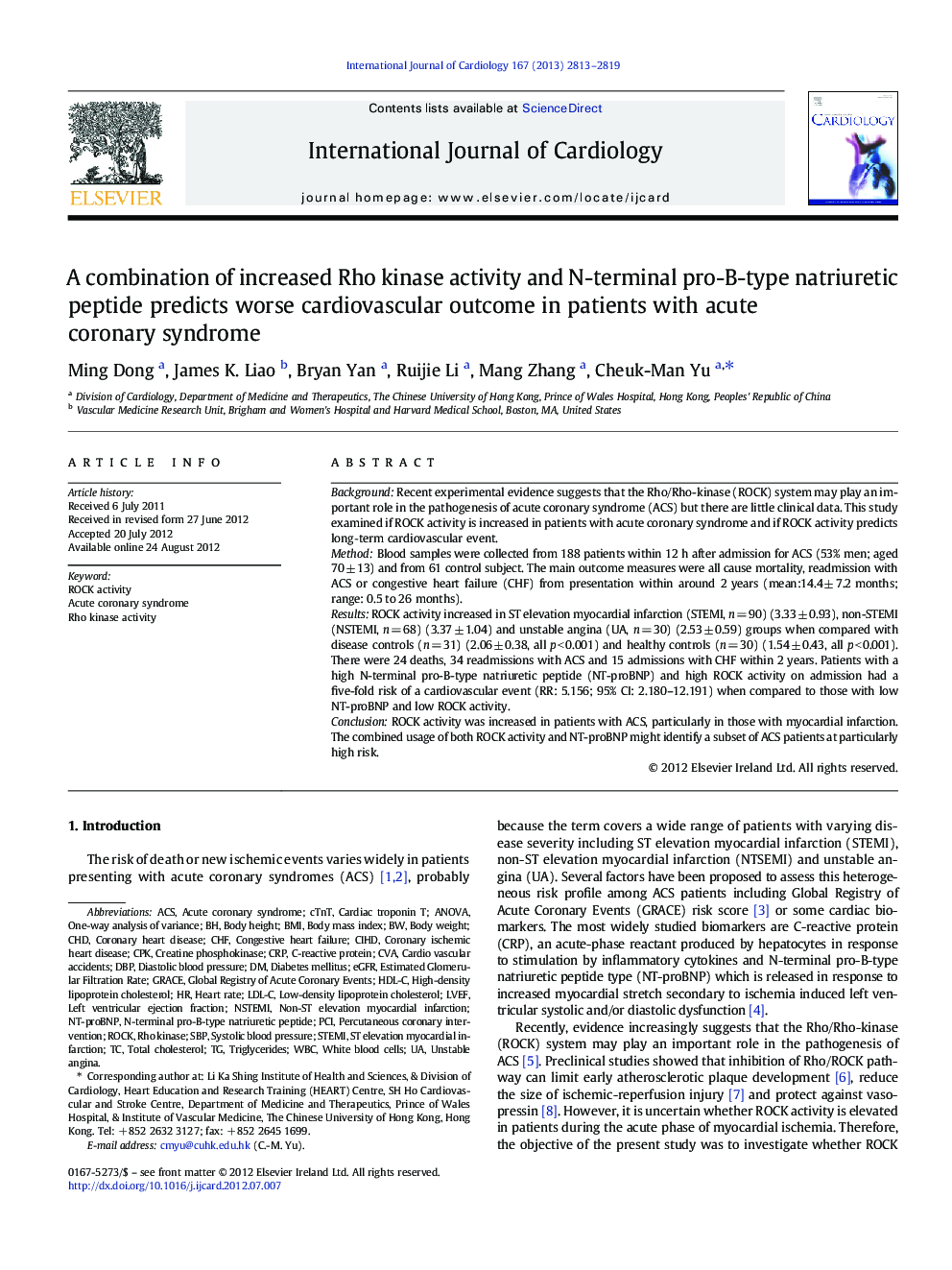| Article ID | Journal | Published Year | Pages | File Type |
|---|---|---|---|---|
| 5974594 | International Journal of Cardiology | 2013 | 7 Pages |
BackgroundRecent experimental evidence suggests that the Rho/Rho-kinase (ROCK) system may play an important role in the pathogenesis of acute coronary syndrome (ACS) but there are little clinical data. This study examined if ROCK activity is increased in patients with acute coronary syndrome and if ROCK activity predicts longâterm cardiovascular event.MethodBlood samples were collected from 188 patients within 12 h after admission for ACS (53% men; aged 70 ± 13) and from 61 control subject. The main outcome measures were all cause mortality, readmission with ACS or congestive heart failure (CHF) from presentation within around 2 years (mean:14.4 ± 7.2 months; range: 0.5 to 26 months).ResultsROCK activity increased in ST elevation myocardial infarction (STEMI, n = 90) (3.33 ± 0.93), non-STEMI (NSTEMI, n = 68) (3.37 ± 1.04) and unstable angina (UA, n = 30) (2.53 ± 0.59) groups when compared with disease controls (n = 31) (2.06 ± 0.38, all p < 0.001) and healthy controls (n = 30) (1.54 ± 0.43, all p < 0.001). There were 24 deaths, 34 readmissions with ACS and 15 admissions with CHF within 2 years. Patients with a high N-terminal pro-B-type natriuretic peptide (NT-proBNP) and high ROCK activity on admission had a five-fold risk of a cardiovascular event (RR: 5.156; 95% CI: 2.180-12.191) when compared to those with low NT-proBNP and low ROCK activity.ConclusionROCK activity was increased in patients with ACS, particularly in those with myocardial infarction. The combined usage of both ROCK activity and NT-proBNP might identify a subset of ACS patients at particularly high risk.
